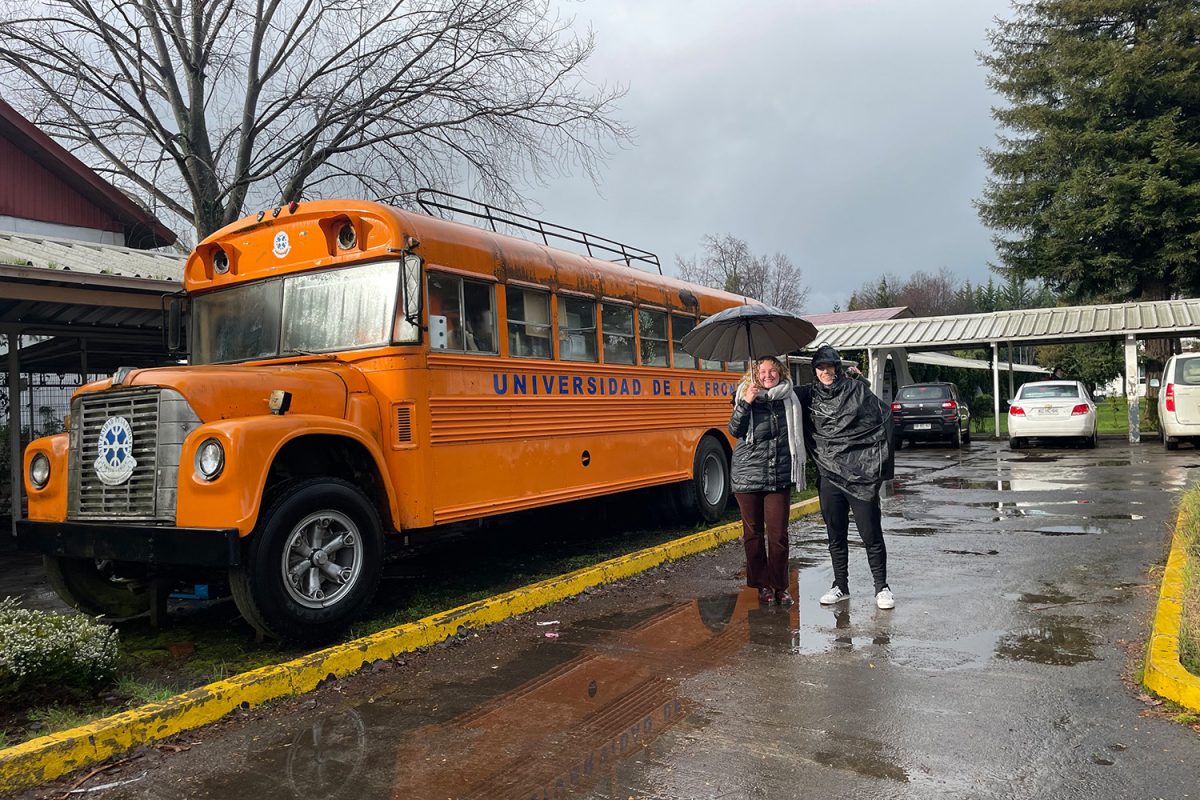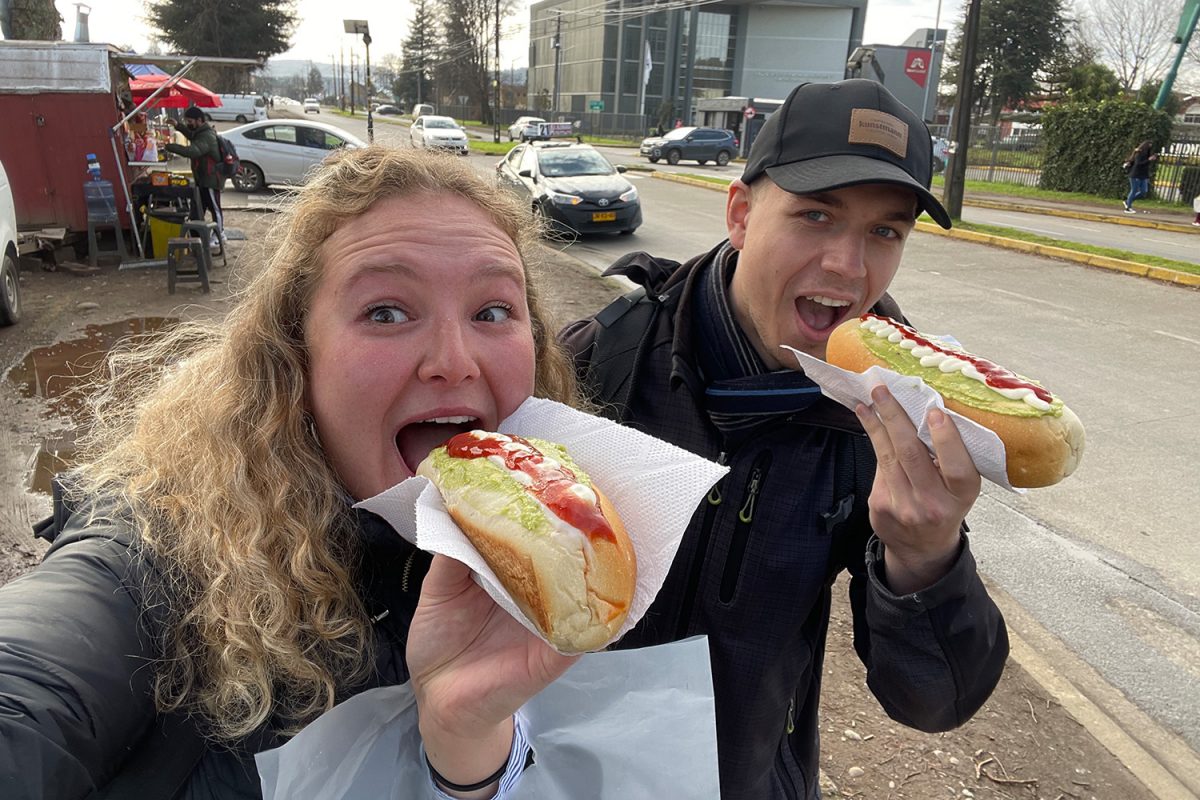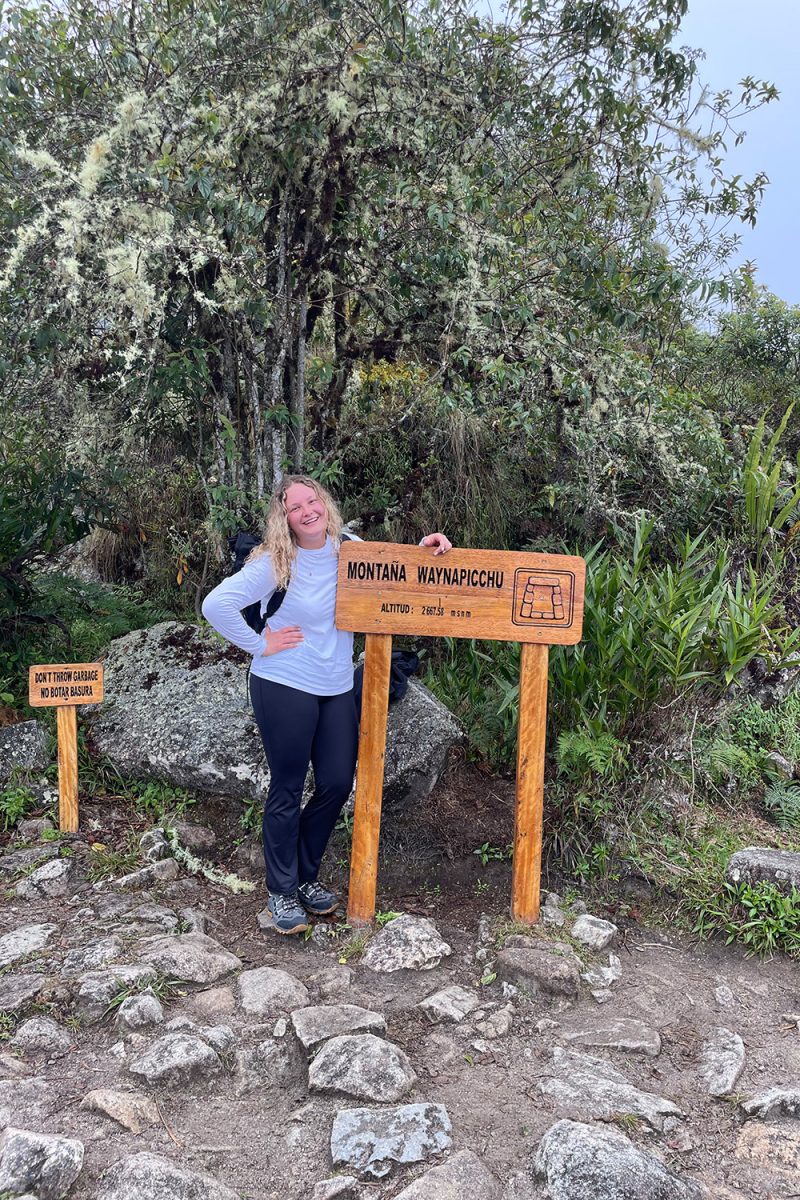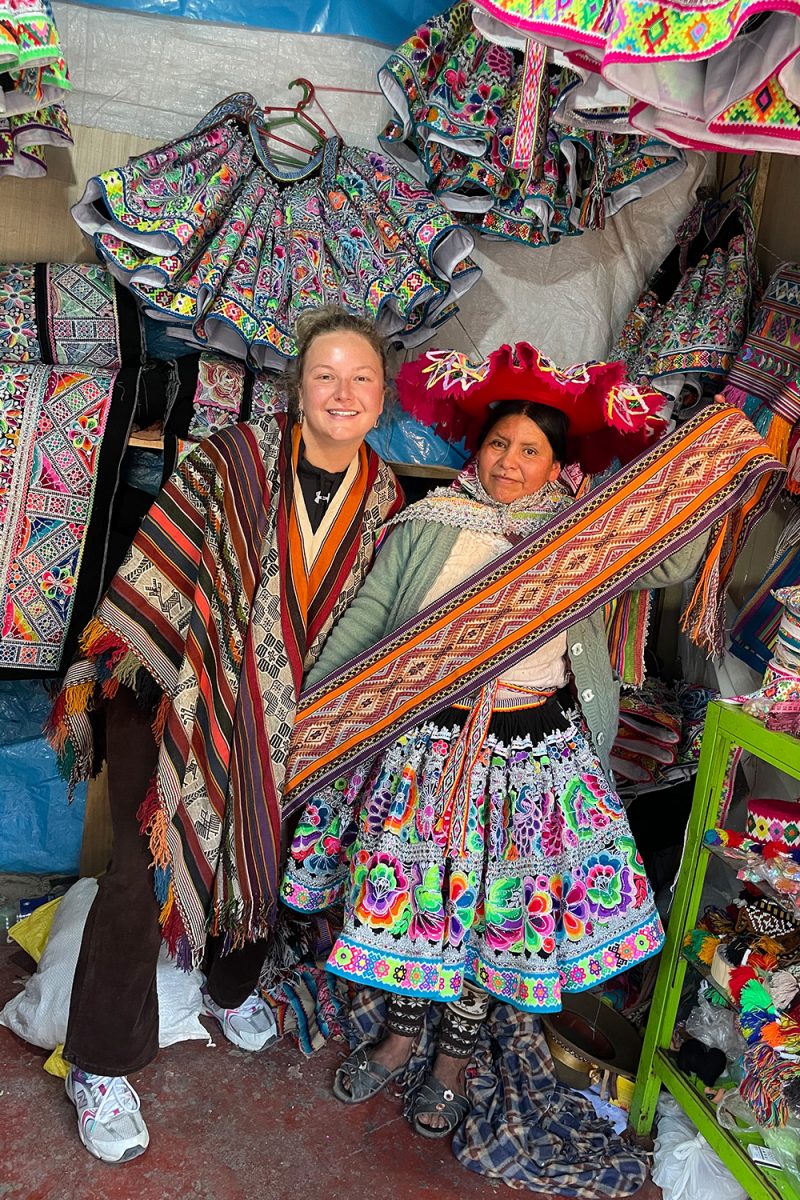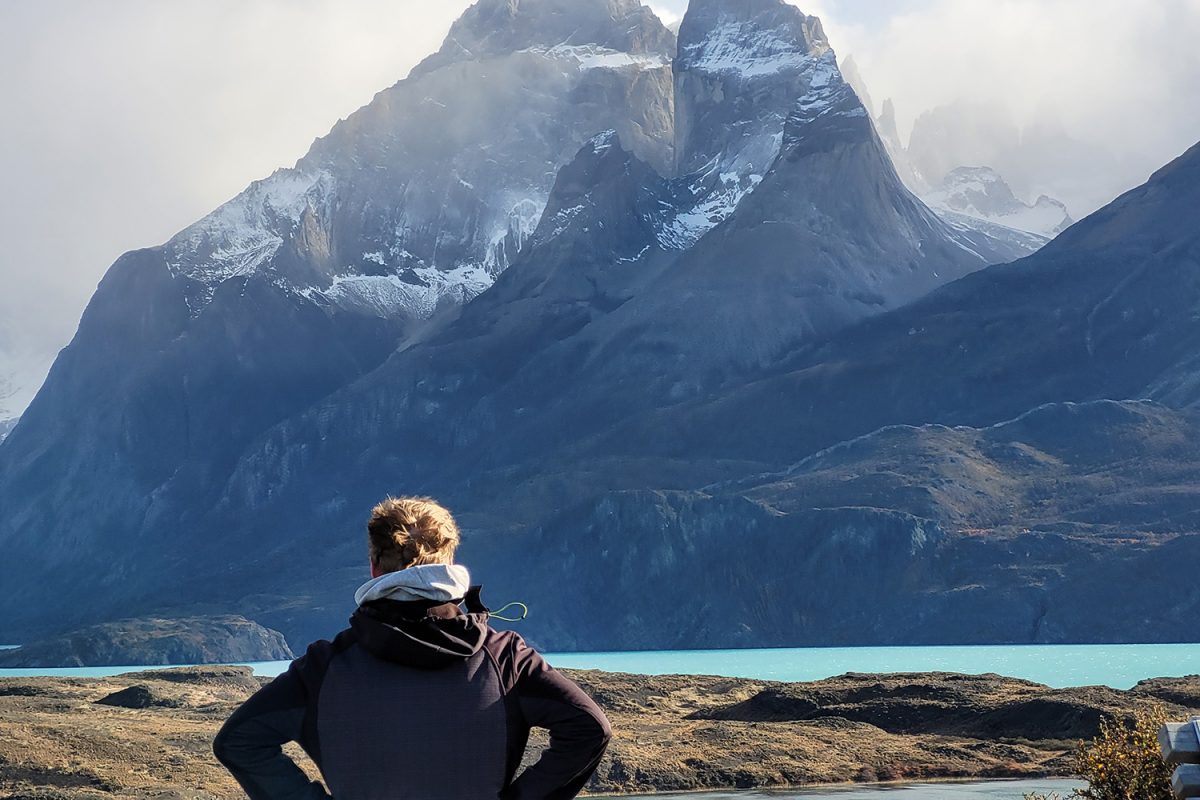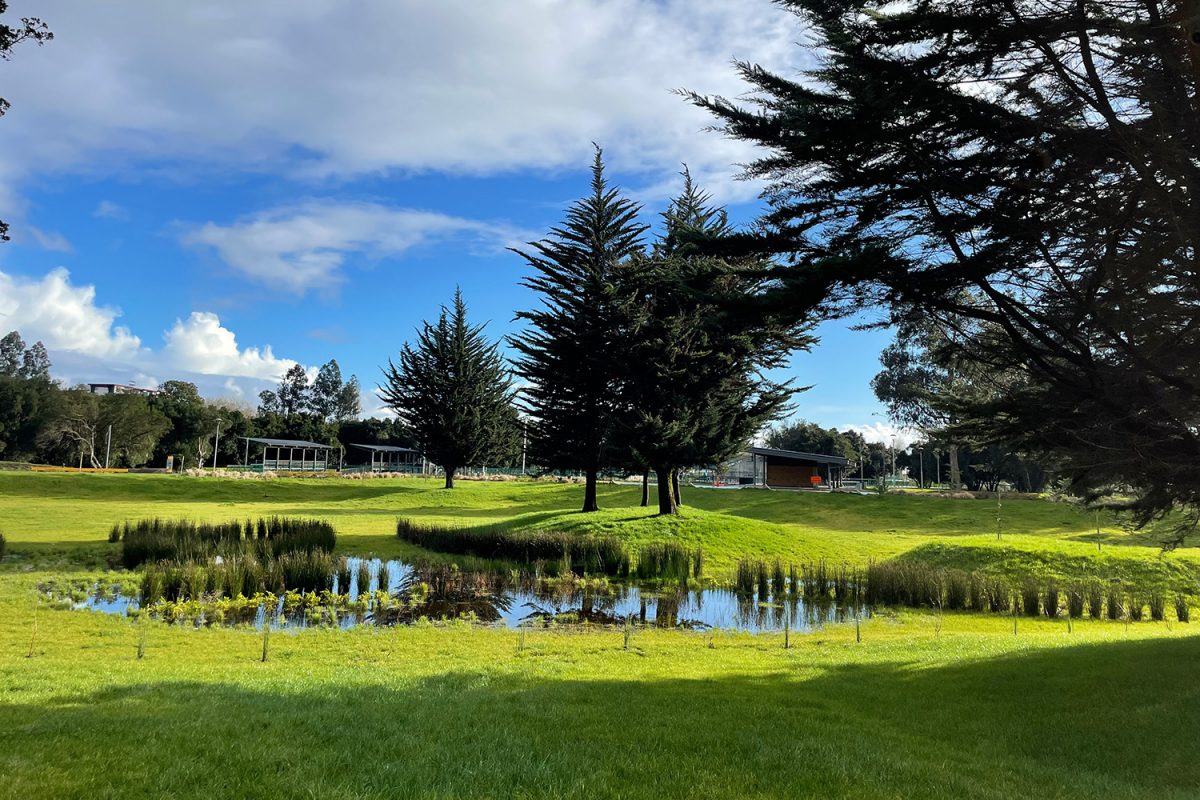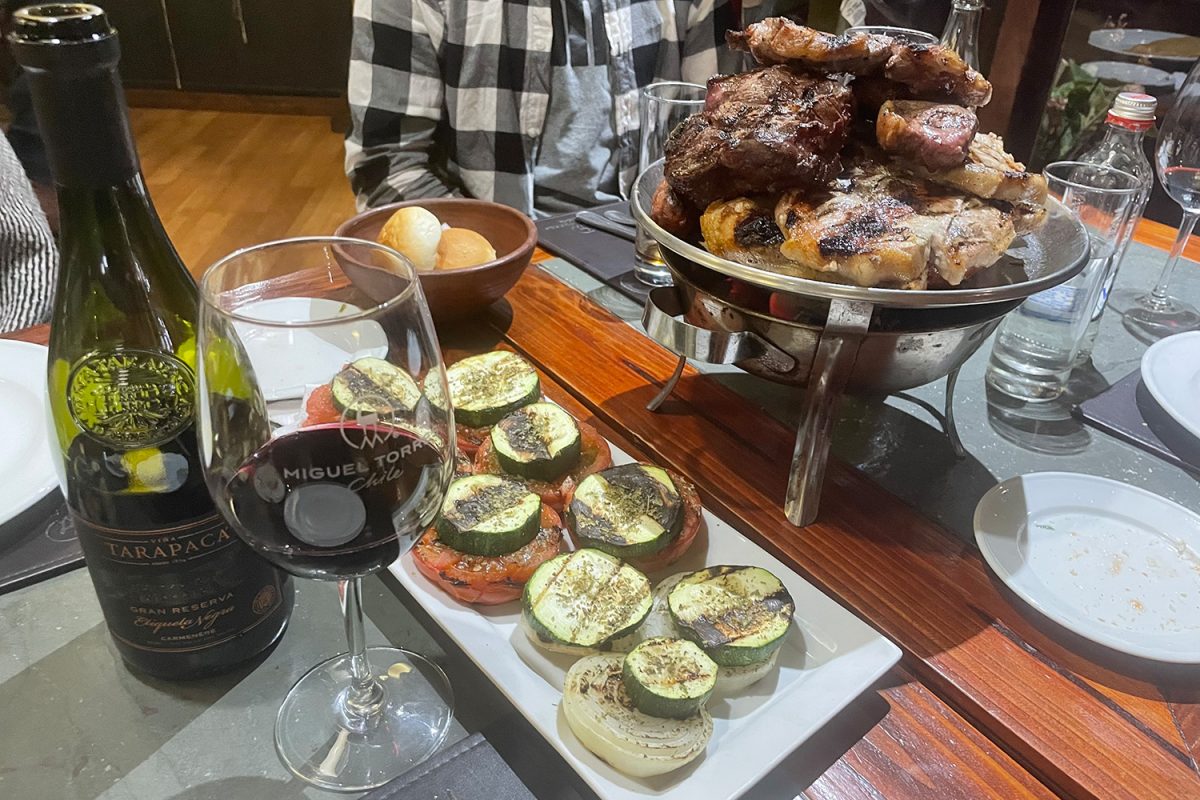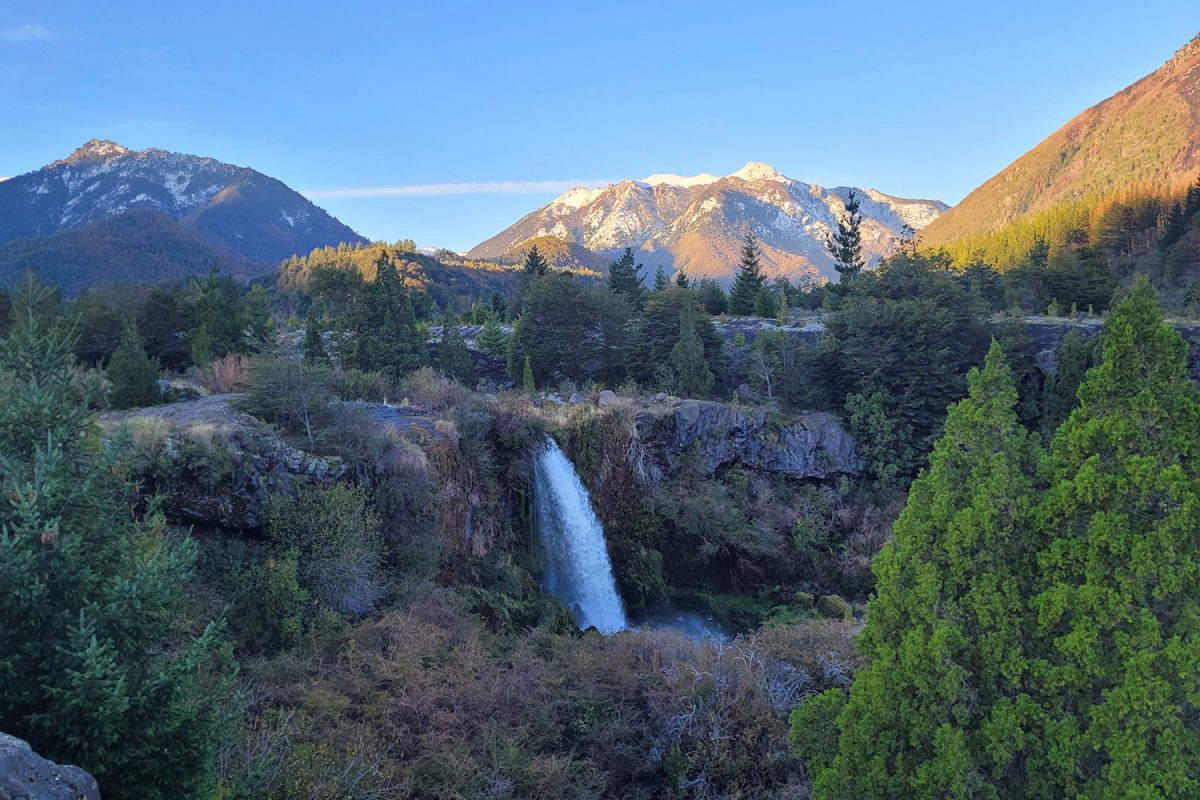Mail from … Chile Students Simon Beike and Hannah Louisa Boog report on their stay in Chile
What life and studying on the other side of the world and what a semester abroad in Chile is like, you can find out in the following text from the two student teachers Hannah Louisa Boog and Simon Beike, who tell you about their very personal experiences.
This is where we live at the moment:
Simon: Since the beginning of March, we have been living and studying exactly 12,886 kilometres away from Braunschweig in Temuco. The city is located in the south of Chile in the rural Araucanía region.
This is what we do in Chile:
Simon: In addition to studying at the Universidad de La Frontera, or UFRO for short, we are doing an internship at a local school. In addition, we enjoy South American life despite the rainy winter.
The total duration of our stay is:
Hannah: Our stay lasts a total of five months from the beginning of March to mid-July. It takes place through the exchange programme “Go out – Come in”, which is funded by the German Academic Exchange Service (DAAD) as part of the project International. Students here have the chance to complete their General School Internship, or ASP (Allgemeines Schulpraktikum) for short, abroad.
This is why we decided to go abroad:
Hannah: First of all, it can be said that it is an experience for life for us. We gain linguistic knowledge, personal experiences and exchange cultural experiences. This has broadened our horizons enormously.
Local Life
This is how we live in Chile:
Simon: There are no classic student halls of residence here. Therefore, we rented a flat together for the first four weeks and enquired about other possibilities on site. Afterwards, we found Chilean host families separately with whom we are now living and can thus experience the country, the people and the language at first hand. We have the feeling that we are really participating in Chilean life.
What makes studying in Chile different from studying in Germany?
Simon: The people here show a certain serenity. This can be seen, for example, in the strictly observed lunch break between 1 and 2 pm. We also have “short wires” to the teachers. Communication is sometimes very informal via messenger services. What I also like is the very personal relationship between the students. Among other things, this is possible because we study in years here, there are no large lectures and only a few students take part in the seminars. There is almost a kind of “class flair” like in school days. Another difference is that the final grade of a module is usually made up of four or five individual exams that are taken during the semester.
Particularly typical for the country of our study abroad is:
Hannah: The first thing that comes to mind is the indigenous Mapuche culture, which is particularly present in our region. Chile is also characterised by its unique diversity of landscapes. With a north-south extension of 4,300 kilometres, this is hardly surprising. As a result, earthquakes, tsunamis, desert storms and volcanic eruptions are nothing unusual in parts of Chile. In culinary terms, the tea drink mate is a must, especially here in our region.
This is what we learned here during the first three days:
Hannah: You have to have a lot of patience and composure. Punctuality is defined differently here. On the other hand, the people in Chile are the friendliest of all. They are open, warm and helpful.
Furthermore, you should always have an umbrella with you. At least in winter there are rain showers almost every day. It can also get quite chilly in autumn and winter, so since it’s winter here, it’s better to wear one or two extra layers. Regarding road traffic: If the traffic lights are red and there is no car in sight, people cross the road – whether young or old.
The biggest challenge during our stay so far:
Simon: First and foremost is clearly Chilean Spanish, which we found difficult to understand, especially at the beginning. Chilean has many of its own modisms [typical Chilean expressions that are the result of mixing Spanish with Mapudung, the language of the indigenous Mapuche people], a fast pace of speech and the endings are often swallowed. At the beginning, this caused us some question marks during conversations and lectures.
This is what we will take home with us from here:
Hannah: I don’t even know where to start. Maybe with the people. Chilean serenity, as I like to call it, is something I had a hard time getting used to at first. In the meantime, I have adopted this basic attitude and feel very comfortable with it.
Good to know
This is a local dish you definitely have to try:
Hannah: Completos. It’s similar to a hot dog, but much better! Also Pebre, a typical salsa that is usually eaten with fried dough bites called Soipapillas. I could list countless more dishes!
There are also many typical drinks: Pisco, Terremoto and Navegado are not to be missed when in Chile. Pisco is a distillate made from grape must and is Chile’s national alcoholic drink. Terremoto, translated as earthquake, is a traditional, very sweet Chilean cocktail. The name comes from the fact that it was invented in 1985 after an earthquake. Navegado is a wine-based hot drink known in the south of Chile. It is mostly drunk in the colder months.
Which blunder should you avoid in Chile?
Simon: If you want to take the bus, you have to indicate this with a hand signal. Otherwise, you may be literally left out in the rain at the bus stop. In addition, if you arrive on time for an appointment, you usually have to wait. At least for private appointments, a certain amount of unpunctuality is part of good manners.
This is a tip we give to other students who want to go abroad:
Simon: Our tip may sound a bit platitudinous, but the most important thing is: enjoy! A stay abroad is a unique and once-in-a-lifetime experience. Even if you are faced with a mountain of unsolved tasks and challenges, especially at the beginning of the planning, it is worth the effort. Always keep the goal in mind, try to deal calmly with unexpected problems and let go of expectations that everything will go perfectly. Because, small spoiler: It won’t. But despite this, or perhaps because of it, a stay abroad can enrich you positively in so many ways.
Pandemic
We took these special precautions in advance because of the Corona virus:
Simon: Most important were the entry regulations in March, due to which we had to take a total of three Corona tests, among other things.
This is how the Corona virus is affecting our stay:
Simon: Because the Corona situation here, as in Germany, has calmed down somewhat, our stay was only minimally affected by the pandemic and so, in principle, everything is possible. Nevertheless, the precautionary measures are still very important here. This is especially true for the everyday mask, which is really worn everywhere in public and also in the open air. It is also somewhat curious that there is a temperature measuring device in practically every building entrance, which not infrequently shows a body temperature of below 35°C when used.
This was our favourite way to pass the time despite the pandemic:
Hannah: Our favourite time here was spent with our fellow students, who became our friends. We also confirmed our athleticism and visited the gym together. I liked to go cycling. Simon plays on the football team for our degree programme. Other activities include climbing, hiking and yoga. When we had the opportunity, we also liked to travel sometimes. Whether it was a day trip to Concepcion or Valdivia or a short trip to Peru or Argentina.

